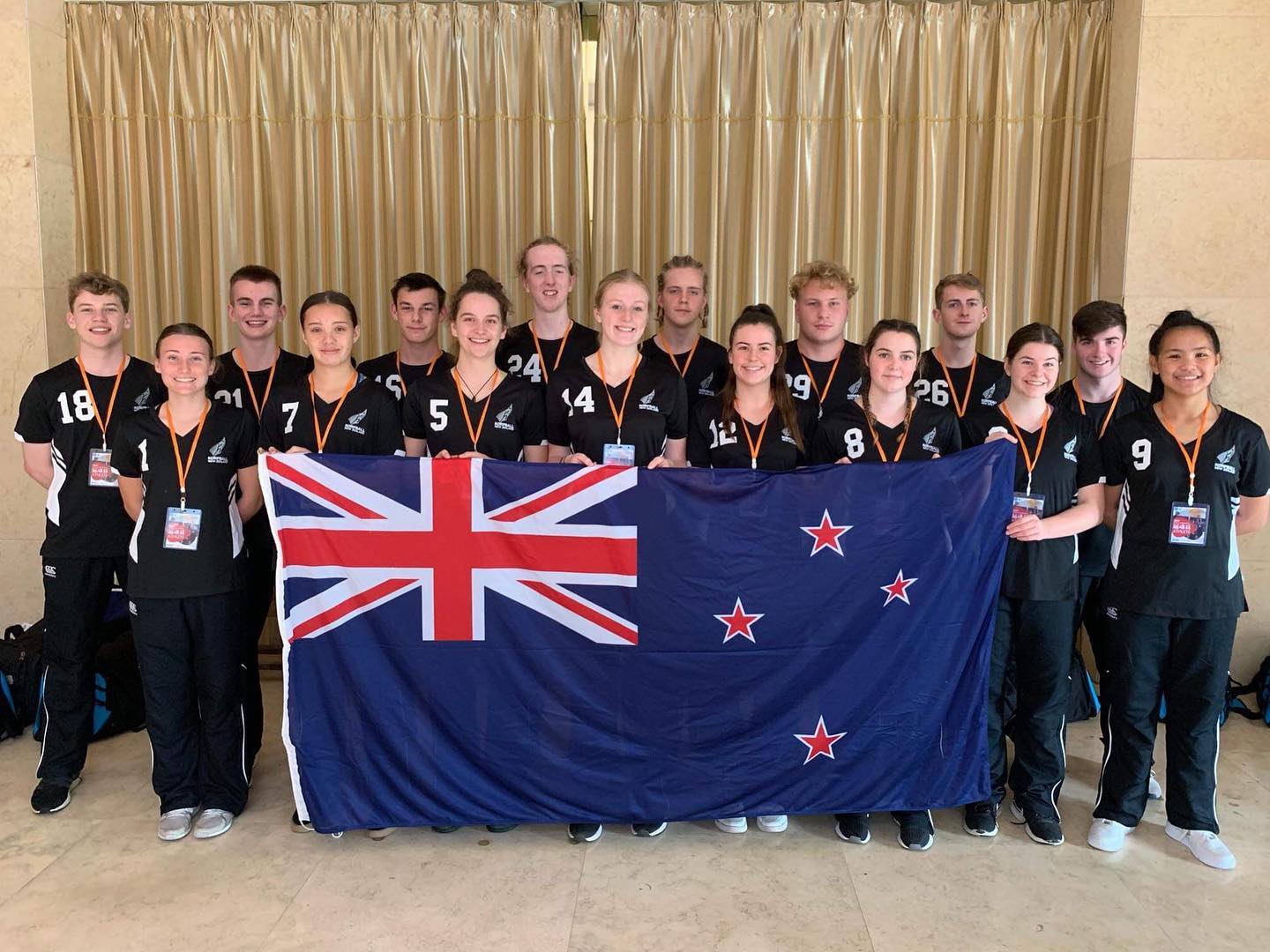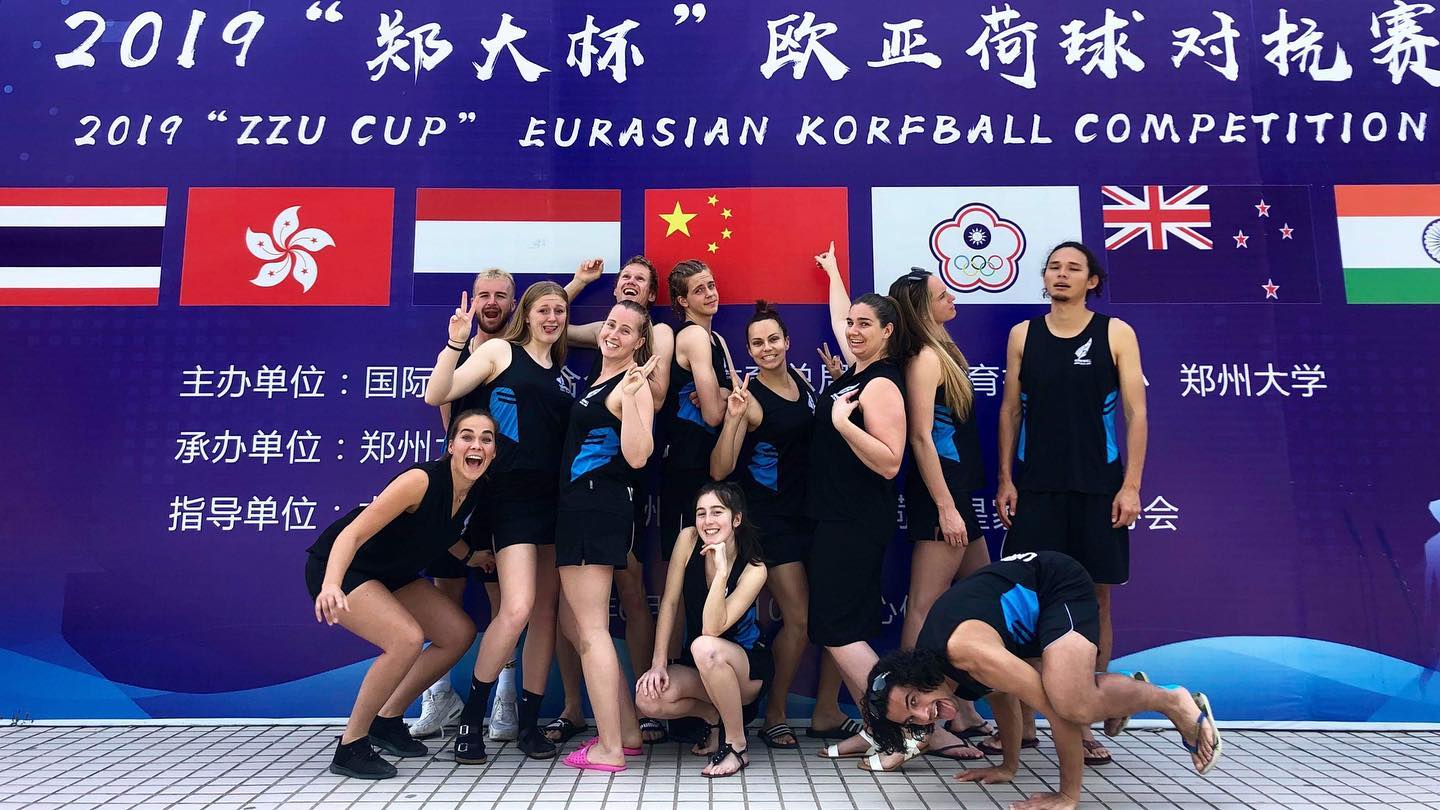
2024 U21 Team Announced
Korfball NZ • March 10, 2024
This is a subtitle for your new post
The body content of your post goes here. To edit this text, click on it and delete this default text and start typing your own or paste your own from a different source.

October 16, 2019
By CJ Fildes Sport has a unique capacity to unite us. It’s one of humanity’s most potent, effective forms of diplomacy. Nothing else brings diametrically opposed groups together in the same way. After all, The Christmas Truce of 1914 wouldn’t have happened without a common love of the ‘beautiful game’. Sport so rarely brings together different genders within one competing unit. Yes, women’s sport is gaining in prominence. Yes, we’re seeing more female sports journalists. Yes, there is more funding for female sports teams. It’s rare – perhaps with the exception of tennis mixed doubles – that men and women can play together equally, collaborate, score goals and win. Gender diversity rarely exists within individual teams sports.

October 16, 2019
Arguments that one sport is superior to all or any others can never be resolved and serve little or no purpose. All sports have a place, but many also have the capacity to adapt and evolve in response to changing trends in society. If the rules of a sport enable situations from ‘real life’ to be symbolically enacted, analogised or mirrored on the field or the court, so much the better. Examining its origins and considering what sets this sport apart from others shows how korfball fits into this model. Like many other team sports, korfball was first developed for children in school. Korfball’s originator, Nico Broekhuysen, taught at a school in one of Amsterdam’s poorer districts at the turn of the twentieth century. Inspired by an early version of basketball he had seen while on a summer camp for physical educators, Nico established korfball in 1903. Unlike all other team sports, Nico’s stroke of genius was to find a simple way of including boys and girls equally within the rules of the game. Other sports originated in single sex schooling environments – either as a deliberate mechanism to keep children apart, or as a matter of necessity because none of the ‘other’ sex were available to play with. By accident or design, Nico took a quite different path. Sport should teach us about life: ‘look after your mates’, ‘if you cheat you only cheat yourself’, ‘with teamwork the sum will be greater than the parts.’ Korfball teaches these lessons, and others, as do many sports. The unique legacy of Nico’s radical departure is a sport that reflects a fundamental truth about society in a way no other sport can: ‘to achieve success, males and females need to work together.’ While it is true that some other sports have developed variants that include both sexes, these generally are not able to create the gender balance inherent to korfball, where the two sexes co-operate together within a team, while personally directly opposing only members of their own sex. Its status as the world’s only truly mixed team sport is the most important thing that sets korfball apart. To use a marketing term, this is its USP (unique selling point). It also has other characteristics that make it fun to play, an ongoing challenge to perfect and a meaningful activity to teach. Structurally, games of korfball can be seen as a series of one on one duels. While the one on one duel is true for the game at the highest level, it is even more strongly the case when played by beginners or those with a social interest. Each player has a personal opponent. For part of the game the primary object is to keep this opponent from scoring. For the rest of the game, the object becomes how to outwit or outplay this person and score against him or her. The opportunity to use skill, speed, experience and psychology to dominate an opponent – either in attack or defence – gives enormous scope for anybody who enjoys competition. Without undermining the urge to compete, Nico’s rules require individuals to prioritise the needs of the team, therefore tempering the selfish aspects that can be associated with competitiveness. Good teamwork is very important. No ‘solo play’ (dribbling or running with the ball) means good players can only succeed if they support and are supported by their team-mates. A so-called ‘one man team’ is unlikely to do well. By the same token, there is nowhere to hide in a game of korfball – everyone has to be involved, or the team will suffer. In general, a korfball team can only ever be as good as its weakest player. Lessons about supporting each other – comprehending and allowing for your team-mates’ strengths and weaknesses – are easy to demonstrate in korfball. Once properly understood, these lessons will serve an individual player and a team well on the court – and possibly even better if they are applied to the rest of life as well. If the rule prohibiting solo play encapsulates basic social principles, the ‘defended’ rule ensures korfball gives players a demanding aerobic workout. While defended by an opponent of the same sex, a player may not shoot for the korf. The first objective for the attacking team is therefore to ‘free’ one of its members from his or her personal opponent long enough for a legal shot to be made. Quick movements, with many changes of pace and direction, are therefore necessary for both attackers and defenders. Through the course of a game, if played against an opponent of approximately equal skill level, this is likely to become very demanding aerobic exercise. The other stroke of genius in Nico’s rules was to require that roles be changed after two goals. In some other sports players take the same role throughout a game – or even throughout an entire sporting career. In korfball variety is important – attackers and defenders will change roles many times during a game. Additionally, even within an attack zone, the roles are more fluid – shooters, assisters and rebounders interchange constantly. Although a degree of specialisation can occur at the top level of korfball, even then all players will need a good practical comprehension of each role if the team is to succeed. The net effect of this is to expand the abilities of players: being a good ‘all-rounder’ is important. What is intangible about the game, however, is how much fun it can be. These lessons that the rules of korfball can teach would never be learnt if children – and adults – did not find the game enjoyable. They do, which, ideology, sociology and educational theory aside, is first and foremost what it is all about. Rob Smith
© 2025
All Rights Reserved | Korfball⼁Site by Concilio


